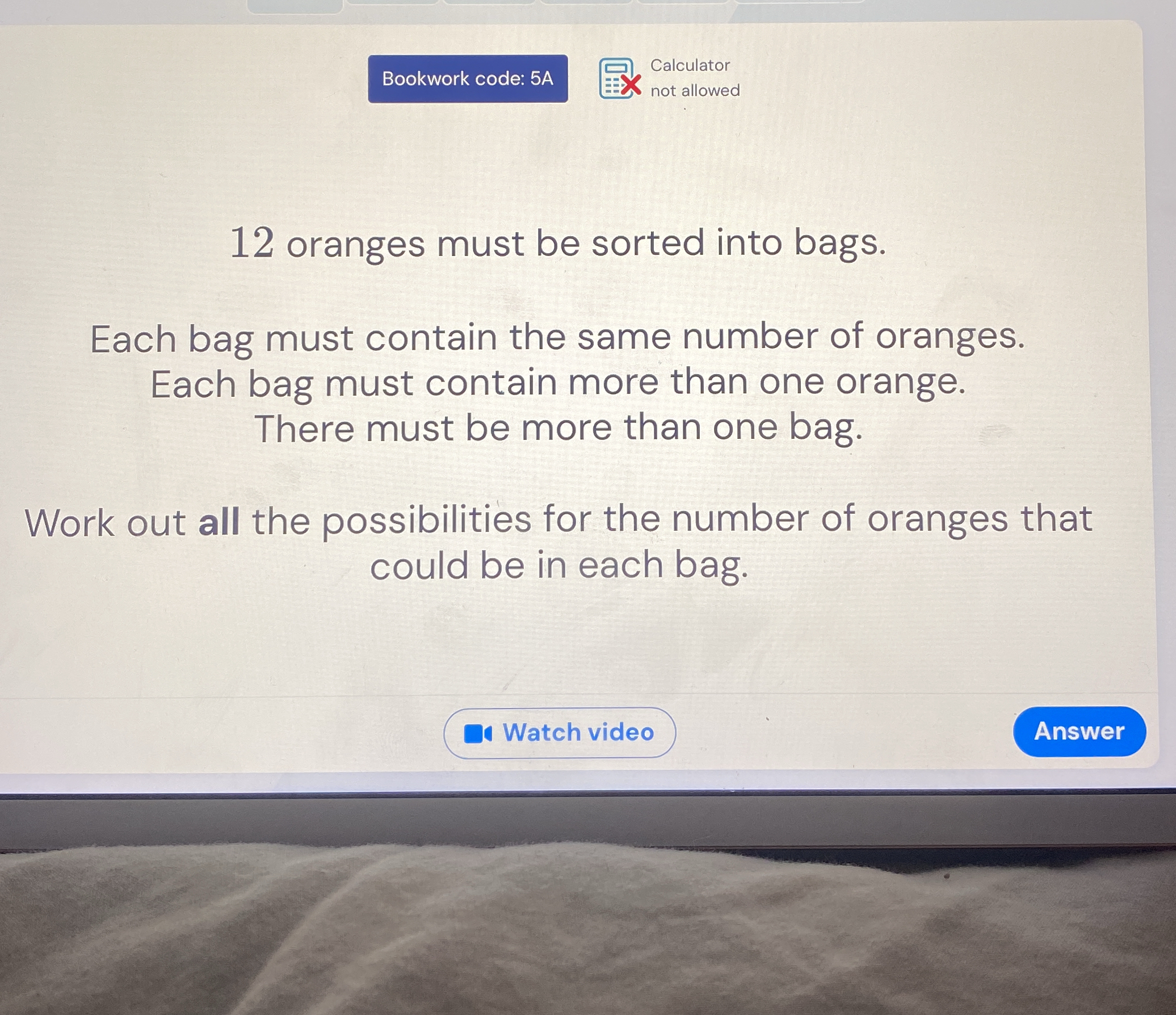12 oranges must be sorted into bags. Each bag must contain the same number of oranges. Each bag must contain more than one orange. There must be more than one bag. Work out all the... 12 oranges must be sorted into bags. Each bag must contain the same number of oranges. Each bag must contain more than one orange. There must be more than one bag. Work out all the possibilities for the number of oranges that could be in each bag.

Understand the Problem
The question is asking to find all the possible numbers of oranges that can be placed in each bag when sorting 12 oranges under specific conditions. Each bag must have more than one orange, each bag must contain the same number of oranges, and there must be more than one bag.
Answer
The possible numbers of oranges that could be in each bag are $2, 3, 4,$ and $6$.
Answer for screen readers
The possible numbers of oranges that could be in each bag are ( 2, 3, 4, ) and ( 6 ).
Steps to Solve
-
Determine total conditions We know there are 12 oranges that need to be distributed into bags, and the conditions state that each bag must contain more than one orange, and there must be more than one bag.
-
Understand the distribution requirement Let ( n ) represent the number of oranges in each bag, and ( b ) represent the number of bags. The total number of oranges then can be expressed as: $$ n \times b = 12 $$
-
Identify limits on ( n ) and ( b ) From the conditions:
- ( n > 1 ) (since each bag has more than one orange)
- ( b > 1 ) (since there must be more than one bag)
-
Find possible factor pairs of 12 The factors of 12 are ( 1, 2, 3, 4, 6, 12 ). We can disregard 1 since it cannot be used (as ( n > 1 )), leaving us with ( 2, 3, 4, 6, 12 ).
-
Check valid pairs Now we need to check which of these factors can represent ( n ) while also ensuring ( b ) remains greater than 1.
- For ( n = 2 ): ( b = \frac{12}{2} = 6 ) (valid)
- For ( n = 3 ): ( b = \frac{12}{3} = 4 ) (valid)
- For ( n = 4 ): ( b = \frac{12}{4} = 3 ) (valid)
- For ( n = 6 ): ( b = \frac{12}{6} = 2 ) (valid)
- For ( n = 12 ): ( b = \frac{12}{12} = 1 ) (invalid because ( b ) must be greater than 1)
- Summarize the viable options The valid combinations for ( n ) (number of oranges per bag) while satisfying both conditions are:
- ( n = 2 ) (6 bags)
- ( n = 3 ) (4 bags)
- ( n = 4 ) (3 bags)
- ( n = 6 ) (2 bags)
The possible numbers of oranges that could be in each bag are ( 2, 3, 4, ) and ( 6 ).
More Information
This solution reflects the different ways to distribute 12 oranges into bags under the specified conditions. Each valid distribution demonstrates multiple options under the same total, leading to various configurations.
Tips
null
AI-generated content may contain errors. Please verify critical information